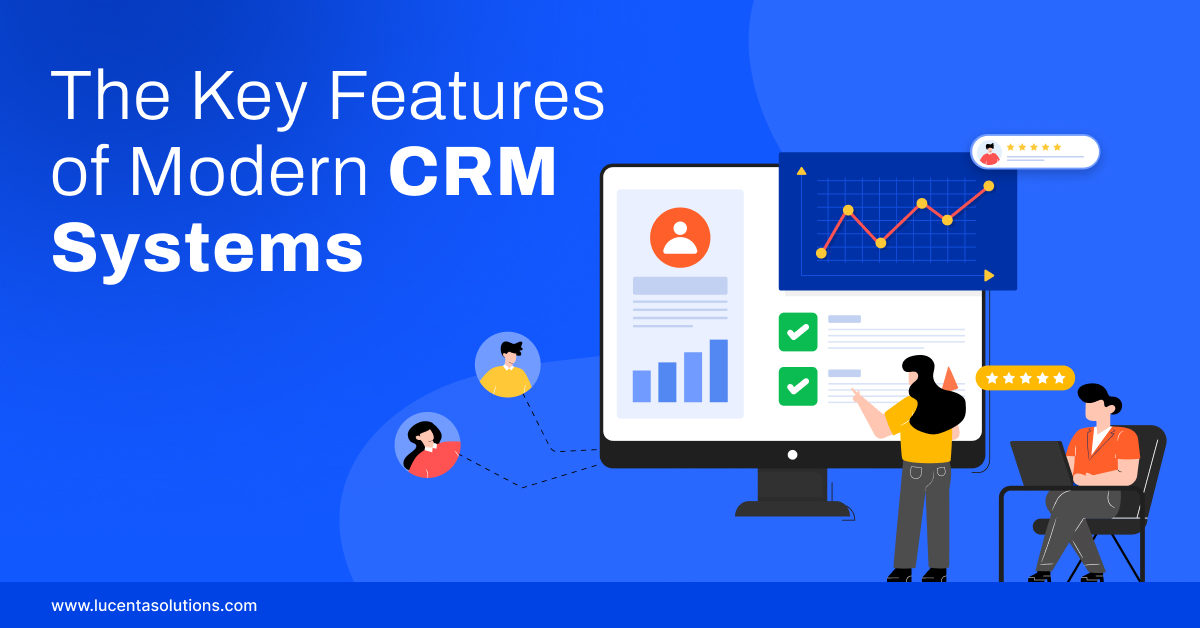The Key Features of Modern CRM System and Their best Practices
Effective customer relationship management (CRM) has become all businesses’ prime pillar of success. In this aspect, modern CRM system have evolved beyond mere databases, transforming them into all-rounder tools empowering organizations to understand, engage, and satisfy their customers.
Using effective CRM system software aims to offer personalized customer service and channel your strategies. This will further help customize your marketing sales to increase your reach to a broader client base.
Let us learn what CRM Software is and how they have become an indispensable part of this complex and competitive commercial world.
What is a CRM System?
A Customer Relationship Management (CRM) system is a powerful organizational tool designed to streamline and enhance client interactions. A CRM developer designs a software platform as a centralized hub, consolidating customer data and interactions across various touchpoints. It goes beyond essential contact management, offering insights into customer behavior, preferences, and transaction histories.
By providing a comprehensive view of the customer lifecycle, CRM systems empower businesses to tailor their strategies, improve communication, and ultimately foster lasting relationships. In essence, CRM system software acts as the digital backbone, aligning teams and processes to deliver exceptional customer experiences with its core components.
Core Components of CRM Systems
In dissecting the efficiency of CRM systems, understanding their core components is paramount. These integral elements work synergistically to transform customer data into actionable insights, driving strategic decision-making and fostering enduring relationships.
- Contact Management
A business usually stores or manages contacts of clients or customers in an address book or excel. However, in the age of modern CRM system, using contact management method is quite common. It helps to organize and access multiple contacts at one place. Furthermore, you can track history to interact personally.
- Lead Management
Lead management allows you to keep a complete track of your company sales along with the distribution. Whether you are into sales, marketing or customer executive, lead management can be beneficial. In other words, this feature helps in having systematic tracking throughout the sales pipeline.
- Sales Automation
Sales representatives, irrespective of the size of the business they are in, battle mightily to meet their goals, therefore any technological assistance they receive is greatly appreciated. One of a CRM system’s biggest features is sales automation, which lets your team concentrate on developing connections and closing deals by taking care of monotonous duties. With sales automation, you can streamline your sales process and allowthe sales team to focus on other essential sales activities.
- Customer Service and Support
Customer relationship management places a strong emphasis on gathering data on customers, including purchasing history and patterns, and distributing the gathered information to the relevant departments. This allows the team to offer promising customer service. You can track and resolve issues promptly that would further enhance customer satisfaction.
- Marketing Automation
One of the most important aspects of CRM system is marketing, a term used to describe the promotional initiatives a business does to advertise its goods. The system further helps in strengthening and increasing the efficacy of the marketing and promotion methods. This is accomplished by observing and researching possible clients. From mass emails to call management and document management, CRM system allows us to cover these marketing aspects.
- Analytics and Reporting
Analytics involves analyzing and displaying data to identify market patterns. Analytics is a crucial component of customer relationship management because it makes it possible to thoroughly examine the data needed to determine how far the company has come. The CRM further allows in generating comprehensive reports to make strategic decision for the business.
- Workflow Automation
When it comes to management, several processes operate concurrently, necessitating both effective cost-cutting measures and process simplification. This is where workflow automation comes to the role. Not only does it cut down on unnecessary spending, but it also stops several people from doing the same action over and over again by decreasing the amount of labour and work that is wasted on unnecessary tasks.
Understanding and optimizing these core components empowers organizations to not only manage customer relationships effectively but also leverage data-driven insights for continuous improvement and growth. Defining these core components enables us to understand the best practices adapted by the best CRM systems.
Best Practices in CRM Development
Adherence to best practices is pivotal for crafting robust systems that define the future of CRM. Let us explore the key principles essential for successful CRM development, ensuring suitable functionality matching the business requirements.
- Define clear objectives
Establish specific goals and outcomes for the CRM system. Align development efforts with business objectives to maximize impact.
- User-centric design
Prioritize an intuitive and user-friendly interface. Conduct user feedback sessions to refine design based on user needs.
- Scalability and flexibility
Design a system that accommodates growth and evolving business needs. Ensure scalability by selecting technologies capable of handling increased data loads.
- Data security and privacy
Implement strong security measures to safeguard customer data. Adhere to data protection regulations and privacy standards.
- Integration with existing systems
Ensure seamless integration with other organizational systems. Facilitate data flow across departments for a holistic view of customer interactions.
- Mobile responsiveness
Prioritize mobile accessibility for on-the-go user interactions. Optimize features for mobile devices to enhance user experience.
- Regular maintenance and updates
Establish a schedule for routine system maintenance. Regularly update the CRM system to incorporate new features and security patches.
- Customization capabilities
Provide flexibility for users to customize dashboards and reports. Adapt the CRM system to match the unique processes of different departments.
- Training and support
Conduct comprehensive training programs for users. Offer ongoing support to address queries and ensure proficient system utilization.
- Analytics and reporting tools
Integrate robust analytics tools for real-time insights. Empower users with customizable reporting features for data-driven decision-making.
- Continuous testing
Implement a comprehensive testing strategy throughout the development process. Conduct regular quality assurance checks to identify and rectify issues promptly.
- Adopt Agile development methodology
Embrace an agile approach for iterative development and quick adaptations. Foster collaboration between development teams and stakeholders for efficient progress.
- Performance monitoring
Implement tools for real-time performance monitoring. Proactively identify and address performance bottlenecks for optimal system functionality.
- Cost-efficiency considerations
Optimize development costs without compromising quality. Evaluate open-source solutions and cloud-based services for cost-effective implementation.
Adhering to these best practices in CRM development lays the foundation for a strong, user-friendly, and adaptable system. Organizations harness the full potential by hiring trusted CRM development services to design an industry-specific solution.
Why should you invest in CRM software?
Now that we have cultivated the best modern CRM practices let us scout the reasons behind investing in such a system for your business.
- Enhanced customer relationships
Cultivate deeper connections by centralizing customer data. Provide personalized experiences, boosting customer satisfaction.
- Improved sales efficiency
Streamline sales processes with automation. Empower sales teams with real-time insights for targeted engagements.
- Data-driven decision-making
Access comprehensive analytics for informed decision-making.Identify trends, opportunities, and areas for improvement.
- Increased productivity
Automate repetitive tasks and free up time for strategic activities. Foster collaboration among teams through shared data and workflows.
- Scalability and adaptability
Grow seamlessly with a scalable CRM system. Adapt to evolving business needs and technological advancements.
- Cost-efficiency
Optimize resource allocation and reduce operational costs. Minimize manual errors and enhance overall operational efficiency.
- Competitive advantage
Gain an edge by delivering superior customer experiences. Stay ahead with timely insights and proactive customer engagement.
Reach out to Lucenta for CRM Development
Investing in CRM software isn’t just a technological upgrade. It is a strategic move that empowers businesses to thrive in a customer-centric landscape. To understand the latest practices and suitable CRM development services in USA for your business, get in touch with Lucenta Solutions. Find a turn-key solution to manage your customer base and improve your business operations over the course of time.




